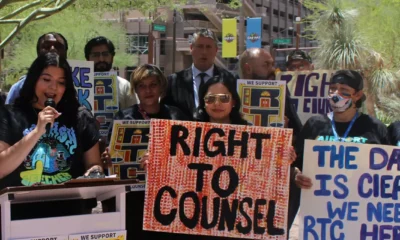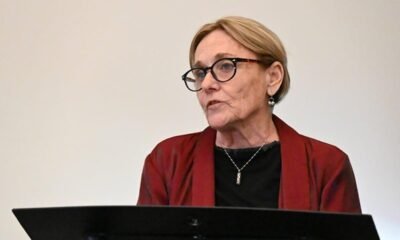American Burn Association
Climate Crisis Catapults Arizona into Unprecedented Heat Extremes

In 2024, Phoenix experienced max temperatures at or above 100 degrees for nearly 30% of the year, raising alarms among environmental advocates and health professionals regarding the looming impacts of climate change.
The previous year was particularly severe, with Phoenix recording 113 consecutive days of 100 degrees or hotter—setting a new record. By comparison, the second longest stretch was 76 days in 1993, followed by 66 days in 2023.
Recent years have consistently produced record-high temperatures. The top ten instances of consecutive days surpassing 110 degrees include multiple entries from 2020 to 2022, culminating in a staggering 31 days in 2023.
As of this year, a 17-day streak of temperatures exceeding 100 degrees has already taken place, with seven days reaching beyond 110.
These temperature extremes have resulted in tragic outcomes. Although 2024 marked the hottest year on record for Arizona, there was a slight decrease in heat-related fatalities, dropping from 645 deaths in Maricopa County in 2023—over half of the national total, according to CDC figures.
Global trends indicate an overall rise in temperatures, with the average increasing by about 2 degrees Fahrenheit since 1880. In Phoenix, local conditions due to the urban heat island effect add approximately 5 additional degrees.
The urban heat island effect is driven by factors such as reduced vegetation and heat-retaining building materials, exacerbating environmental pollution.
Data from the Arizona Department of Environmental Quality indicates a troubling rise in ozone exceedance days in Phoenix, from 33 days in 2015 to 53 in 2022—a notable 60% increase.
“We are at the epicenter of this crisis in the United States,” stated Dr. Jack Tuber, a pulmonologist and Sierra Club member. “Heat is one of the deadliest consequences of global warming and extreme weather.”
Recently, local advocates and experts gathered for a “People’s Hearing” at South Mountain Community College to address the impacts of extreme weather. The event featured a coalition of environmentalists, healthcare professionals, and community leaders.
Representatives from the Sierra Club and other organizations joined local politicians, including Senators Mark Kelly and Priya Sundarashen, to discuss climate change and related policies. Attendees urged lawmakers to consider the growing crisis while emphasizing the need to oppose rollbacks of environmental protections.
“I’m horrified at the planned rollbacks,” remarked climate scientist Vernon Morris, voicing concerns about the implications for weather prediction models and public health.
Dr. Ryan Glaubke, a paleoclimatologist, warned the audience about entering uncharted territory with climate change, stressing the crisis is due in large part to human activity. Efforts to address it face significant challenges.
The risk of severe burns is a pressing concern. Exposing skin to temperatures surpassing 130 degrees can lead to serious injuries in less than thirty seconds, according to Dr. Clifford Sheckter, a burn specialist.
As temperatures soared in Phoenix, reaching hazardous levels for playground equipment and pavement, vulnerable populations—particularly the unhoused—were adversely affected.
Jazmin Moreno from Agave Community Threads shared her personal connection to the issue, drawing attention to workers enduring extreme heat for hours daily. “This isn’t just weather; it is a climate crisis,” she asserted.
Health professionals like Tuber are witnessing a surge in heat-related cases, underlining the need for education and preventive measures against injuries and vector-borne diseases such as malaria and Lyme disease, exacerbated by climate conditions.
The emergence of Valley Fever, linked with increased heat and drought, presents another health risk specific to Arizona. Tuber described the current situation as an “environmental disaster.”
The ongoing rise in temperatures poses escalating threats to lung health. Tuber discussed how warmer air exacerbates respiratory problems, emphasizing the urgency for preventative care amid the deepening climate crisis.
This week, Arizona marked the arrival of its first monsoon storms of the season, while much of the state remains under heat advisories and facing increased wildfire threats, amplified by dryer conditions.


















